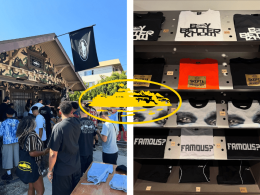Introduction:
In today’s digital age, fraudsters have become increasingly sophisticated in their attempts to deceive people and make them fall victim to various scams. One of the prevalent and dangerous scams is the fake check scam. Scammers send fake or fraudulent checks to unsuspecting individuals and persuade them to deposit the money and then send a portion of it elsewhere. These scams can lead to significant financial losses, leaving victims devastated and struggling to recover their money. In this comprehensive guide, we will explore how fake check scams work, what happens if you deposit a fake check, how to identify red flags, the latest scam tactics to watch out for, and most importantly, how to protect yourself from falling prey to counterfeit checks.
What Are Fake Check Scams? How Do They Work?
Fake check scams involve scammers sending victims counterfeit checks and asking them to deposit the money into their accounts. The scammers typically request the victims to send a portion of the money to another party, claiming it’s for various reasons like covering fees or processing costs. The catch is that the fake check appears genuine enough to pass the initial verification process, and victims often see the funds in their accounts, leading them to believe the check is legitimate. However, once the bank discovers the check is fake, they will deduct the full amount from the victim’s account, leaving them responsible for any money they sent to the scammers.
How to Identify a Fake Check: 7 Red Flags
Spotting a fake check can be challenging since scammers make them look as real as possible. However, there are several red flags to watch out for:
- Smooth edges on all sides: Real checks usually have one perforated edge from being torn out of a checkbook. Fake checks often lack this perforation, resulting in smooth edges on all sides.
- Poor-quality paper: Real checks are printed on high-quality, thick paper stock with a matte finish. If the check feels fragile or has a glossy finish, it could be a fake.
- Misspelled company information: Fake checks may contain spelling errors in the company name or a bogus address.
- Suspicious logo: Legitimate checks have the issuing bank’s logo. If the logo looks faded or unfamiliar, the check is likely forged.
- Inconsistent check numbers: A genuine check will display the same check number at the top and in the magnetic ink character recognition (MICR) line at the bottom. Discrepancies indicate a fake check.
- Absence of a MICR line: The MICR line is printed with special ink that can be recognized by a reader. If it’s missing, the check is likely counterfeit.
- Mismatched routing number: Each bank has a unique nine-digit routing number. Ensure that the routing number on the check matches the bank’s actual routing number.
Photo by cottonbro studio: https://www.pexels.com/photo/a-person-s-hand-holding-a-cheque-6862457/
The 5 Latest Fake Check Scams To Watch Out For:
- Mystery Shopper Jobs “Evaluating” Money Transfer Services: Scammers offer fake jobs as mystery shoppers to evaluate money transfer services. They send a check to the victim and ask them to send money to the “distributor” or “training company.” Later, the check bounces, leaving the victim responsible for the funds sent.
- Car Wrap Advertisement Offers That Want You to Pay by Check: Fraudsters contact victims with offers to pay them for advertising on their cars. They send a check to cover the cost of wrapping the car, but the check is fake. Victims lose both the money they sent to the scammer and the item they shipped.
- Work-from-Home Jobs Requesting That You Buy Supplies or Pay for Training: In this scam, scammers offer work-from-home jobs but ask victims to pay for their own supplies or training upfront. They send a check to cover the expenses, but the check bounces, and victims are left with a loss.
- Overpayment Scams When You’re Selling Items Online: Scammers buy items listed for sale online and send a check for more than the sale price. They ask the victim to send the difference via a cash transfer app. The check bounces, and the victim loses both the money they sent and the item they shipped.
- Surprise Prize or Sweepstakes Winnings Sent as a Check: Victims receive messages claiming they’ve won a lottery or sweepstakes and need to pay a processing fee before receiving the prize. They are sent a check to cover the fee, but it’s fake, leaving victims at a loss.
Did You Send Money to Scammers or Give Them Personal Information? Do This:
If you have fallen victim to a fake check scam and sent money or personal information to scammers, act quickly to mitigate the damage:
- Report the fraud to your bank: Inform your bank about the scam, negotiate a repayment plan, and take steps to protect your account from identity theft.
- Try to prevent the payment from going through: If you paid the scammer with a gift card, contact the company that issued it to freeze the card and potentially return your money.
- Contact creditors impacted by the loss: Inform any creditors you owe money to and work out a plan to minimize the consequences of late payments.
- File reports with consumer protection agencies: Submit complaints to the FTC, USPIS, IC3, your state’s Attorney General, and file a police report.
- Consider identity theft protection: Monitor your credit and personal information regularly to safeguard against potential future fraud.
How To Avoid Fake Check Scams:
Protect yourself from falling victim to fake check scams by taking these preventive measures:
- Never accept blank checks or overpayments: Refrain from accepting checks for more than the agreed-upon amount or blank checks that can be filled in later.
- Wait until checks clear before sending money: Allow checks to officially clear, which usually takes 1-2 weeks, before transferring funds to anyone.
- Avoid sending money to payees or third parties: Be cautious of requests to send money via wire transfer, gift cards, cryptocurrency, or any non-reversible methods.
- Ignore unexpected prize winnings: Treat unsolicited messages about surprise winnings or prizes with skepticism and verify their legitimacy with the company directly.
Conclusion:
Fake check scams continue to be a significant threat in the digital age, with scammers becoming more cunning in their tactics. By staying informed and vigilant, you can protect yourself and your finances from falling prey to counterfeit checks. Be cautious of suspicious offers, red flags in checks, and any requests for upfront payments. Remember, if a deal sounds too good to be true, it probably is. Always verify the authenticity of checks and avoid sending money to unknown parties. By following these precautions, you can safeguard your financial well-being and avoid the devastating consequences of fake check scams.










